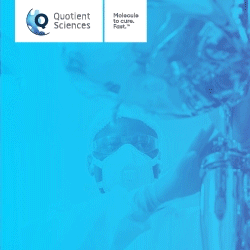Palisade Bio Presents Positive Preclinical Data Highlighting Potential of PALI-2108 as a Promising Colon-Specific PDE4 Inhibitor for the Treatment of Ulcerative Colitis & Other Inflammatory Bowel Diseases
Palisade Bio, Inc. recently announced the presentation of positive preclinical data from PALI-2108, an orally administered, colon-specific phosphodiesterase-4 (PDE4) inhibitor prodrug in development for patients with ulcerative colitis (UC). The presented data highlighted the efficacy and safety profile of PALI-2108 in a mouse model of colitis, with a particular focus on its impact on PDE4B expression, cAMP levels, and TNF-α suppression as well as predicting efficacious PALI-0008 levels in patients.
The first poster titled, PALI-2108, A Colon-Specific PDE4 Inhibitor Prodrug, as Bioactivated in the Colon and Reduces Colon Tissue PDE4B in a Dose-Dependent Manner, Increasing c-AMP and Suppressing TNF-α in A Mouse Model of Colitis was presented as a Poster of Distinction as part of the “In Vivo Models of Gastrointestinal Disorders” session at Digestive Disease Week (DDW) 2025 being held May 3-6, in San Diego, CA.
“We continue to build a growing body of preclinical and clinical results for PALI-2108 that underscores its potential to be an important option for patients with inflammatory bowel diseases, like ulcerative colitis,” said Mitch Jones, MD, PhD, Chief Medical Officer of Palisade Bio. “We continue to make encouraging progress in our ongoing Phase 1a/b study of PALI-2108 in UC and expect to report topline data from the completed Phase 1a portion of the study by the end of May 2025.”
For the preclinical study, colitis was induced in mice using 4% dextran sulfate sodium (DSS) in drinking water. Mice were treated with PALI-2108 at 20, 40, or 80 mg/kg BID, cyclosporine A (40 mg/kg), or apremilast (12.5 mg/kg). Clinical disease progression was monitored through changes in body weight, stool consistency, and fecal blood scores, with the Disease Activity Index (DAI) calculated to quantify disease severity. Colon biopsies were collected for analysis of PDE4B expression, expression of inflammation related genes, cAMP levels, and TNF-α expression.
Pharmacokinetic (PK) modeling using data from healthy volunteers suggested that PALI-2108 has favorable absorption and bioavailability, supporting its potential for clinical use
Key Highlights
- PALI-2108 treatment significantly improved clinical parameters of colitis, including the DAI, body weight, and colon length in a dose-dependent manner.
- PALI-2108 administration resulted in a marked dose-dependent reduction of PDE4B expression in colon tissues, with higher cAMP levels and a notable suppression of TNF-α compared to standard treatments like cyclosporine A and apremilast.
- By increasing cAMP levels and modulating key inflammatory mediators such as TNF-α, PALI-2108 shows significant potential for reducing symptoms associated with UC.
- The preclinical data underscore PALI-2108’s efficacy and safety profile, with minimal CNS toxicity and favorable dose-dependent effects.
In addition to the selected Poster of Distinction, Palisade Bio presented a second poster titled, A Bioinformatic Approach to PALI-2108 Treatment in Ulcerative Colitis Reveals the Potential for Anti-Fibrotic Efficacy with Local PDE4 Inhibition in Intestinal Fibrosis. The presented posters are now available on the Publications page of the company’s website.
The company is currently conducting a Phase 1a/b single-center, double-blind, placebo-controlled study focused on safety, tolerability, pharmacokinetics, and pharmacodynamics in healthy volunteers, alongside an open-label study involving a patient cohort with UC. For more information about the Phase 1a/b clinical study, visit clinicaltrials.gov and reference identifier NCT06663605.
Palisade Bio is a clinical-stage biopharmaceutical company focused on developing and advancing novel therapeutics for patients living with autoimmune, inflammatory, and fibrotic diseases. The Company believes that by using a targeted approach with its novel therapeutics it will transform the treatment landscape. For more information, visit www.palisadebio.com.
Total Page Views: 1957















